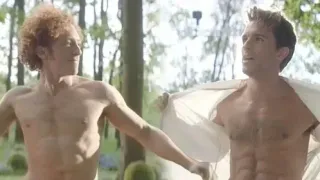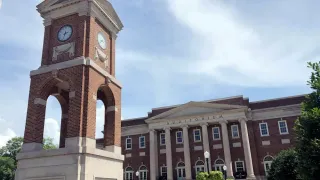November 22, 2022
Review: Manuel Muñoz's 'The Consequences' Unfailingly Honest
Tim Pfaff READ TIME: 5 MIN.
Migrant Valley, one of America's most hidden regions –though it's right there at the side of the highway for anyone to see– is vividly portrayed in Manuel Muñoz's new short story collection "The Consequences" (Graywolf Press). Leaving these haunting stories, the reader is unlikely ever to forget the camouflaged region and its secrets again.
Almost to a one, Muñoz's characters are migrant farm workers in California's Central Valley south of Fresno or their live-in relatives. A few have achieved U.S. citizenship, but most are Mexicans tilling American fields and orchards, dodging immigration authorities, and leading hardscrabble lives on the north side of the muddy border river most all of them have crossed to reach the land of opportunity.
The ease with which Muñoz's stories unfold belies the difficulties of the migrants' lives except in one particular. They are distinctly undramatic. There's little of what is sometimes called local color in them, certainly as regards descriptions of the physical environment. In its place is an enveloping reality of something that most challenges writers of fiction: the monotony of poverty.
Always with us
Even the nostrum of the poor always being with "us" gets a twist. A major subject of these tales is waiting –waiting for the men to come home after their grueling long days in the fields, waiting for the children to grow and have better lives, waiting for the heat to break, waiting, sometimes futilely, to be paid.
Another is the endlessness of migration. Muñoz's people are continually if not continuously on the move. Town and city names go by in a blur as characters move from farm to farm and region to region, either in flight or in the never-ending hope of a better life at the end of an ever-receding rainbow.
Then there's the paucity of money, which colors everything. Only one of the migrant characters – the farm-owners are so remote that they require no characterization– shows any aptitude for making, keeping, loaning, and growing money, which lands him in a position in his community that is, in our current parlance, only esteem-adjacent.
The glory of this, the out author's third collection of fiction, is the patience of the prose.
There are occasional felicitous turns of phrase, sentences that strike like the snakes the workers fear waking in the fields. But there's no flash and a conspicuous turning away from anything like authorial exhibitionism. The writing is unfailingly honest. How often is literary fiction branded with that adjective?
Early in a story with the naked title of "Fieldwork," Muñoz evokes his characters' plight in language of startling directness. "My best friend told me that his family, like mine, had come to the Fresno area because of the fieldwork.... His father and his mother drove a truck from town to town, looking for crops to pick, and they lived like that until the truck broke down on Highway 99 outside of Selma. They had no money to fix the truck, so they settled there."
Women on the verge
With their men so far "away," in all senses of the word, the women rule the roost, at least when there is a roost to rule. Muñoz gets deep inside their hearts, minds, and struggles without gratuitous character inflation. There is no heroism in these stories, just grit and, in the best cases, something like fidelity.
We're a ways into the last story, "What Kind of Fool Am I?" before we learn conclusively that the narrator is a woman –a daughter and, more to the point here, a caring sister. That she herself acquires a boyfriend, Goyo, is as much a surprise to the reader at this point in the collection as it is to her.
Before he ghosts her, perhaps inevitably, he's drawn deep into the family secret. Her brother, Teo, has another identity, "Teddy," a 16-year-old runaway who keeps body and soul together by, in his own bare words, letting older men fuck him in the ass. It's a living of sorts, until it's not.
To no one's surprise, the valley is no place to be gay, at least as far as liberation and happiness are concerned. The most vivid of the gay sex episodes depicted in the stories is a nervous, movie-theater, next-seat-over blowjob, an interaction between Mauricio and Pico that leaves the recipient, quickly abandoned, as forlorn as he is sticky.
Teo is disparaged as a "joto," a faggot, but it's his johns who come in for the most scathing descriptions. Mark and (a different) Teddy are at the most entangled. After essentially anal-raping Teddy, Mark, "who enjoyed causing this kind of hurt ... asked Teddy to come away with him."
The specter of HIV haunts their relationship until it finally claims Teddy. In a development many gay men who lived through the epidemic will find all too familiar, Mark has to sneak into Teddy's "for family only" funeral. His retreat from the rites involves all-night driving against the advice of a gas-station manager.
"Mark kept looking out at the black nothing that lay just beyond the gas station, the black nothing that Teddy had come from, and the black nothing into which he had returned."
The closest Muñoz comes to non-linear, plain-speaking story-telling is in Mark's seeing "a dark silhouette," a hallucination of Teddy. Inviting it in, Mark finds that "the silhouette moved toward him, but the face remained in shadow. When it refused to reveal itself, a great sadness overtook Mark and he woke, startled and tearful."
The relationship of a home-owning gay couple, Juan and Daryl in "Presumido," is troubled by Juan's alcoholism. But in the opinion of their friend Severina, it is Daryl who is "presumido," a word with "weight.... Juan knew what the word meant. Arrogant, Self-centered."
The central feature of the migrants' lives is, of course, "work." In story after story drained of self-pity, the reader encounters a large cast of characters who, against the odds, get up every day to have at it again.
"Work demanded everything of my family," says the narrator of "Fieldwork," whose own work is centered on helping his mother care for his institutionalized father. Over the course of the story it is revealed that the first of his siblings died in infancy. "All work is hard, my mother said. We all work in our own ways."
Of her husband's fellow patients, his mother says, "They'll get out soon if they do their exercises, as if to remind me that this place was not the end. No place is the end if you don't want it to be. If you work hard you can leave."
For most of Muñoz's characters, if only....
'The Consequences' by Manuel Muñoz, Graywolf Press, 181 pp., $16. www.graywolfpress.org
www.manuel-munoz.com
Help keep the Bay Area Reporter going in these tough times. To support local, independent, LGBTQ journalism, consider becoming a BAR member.






